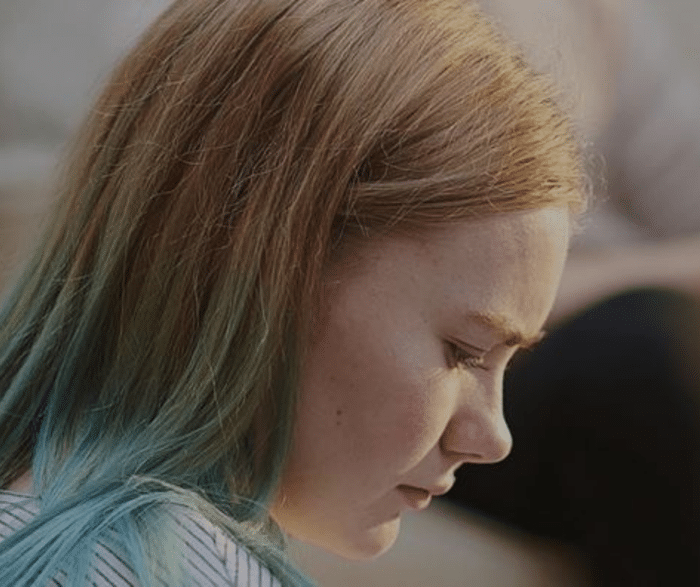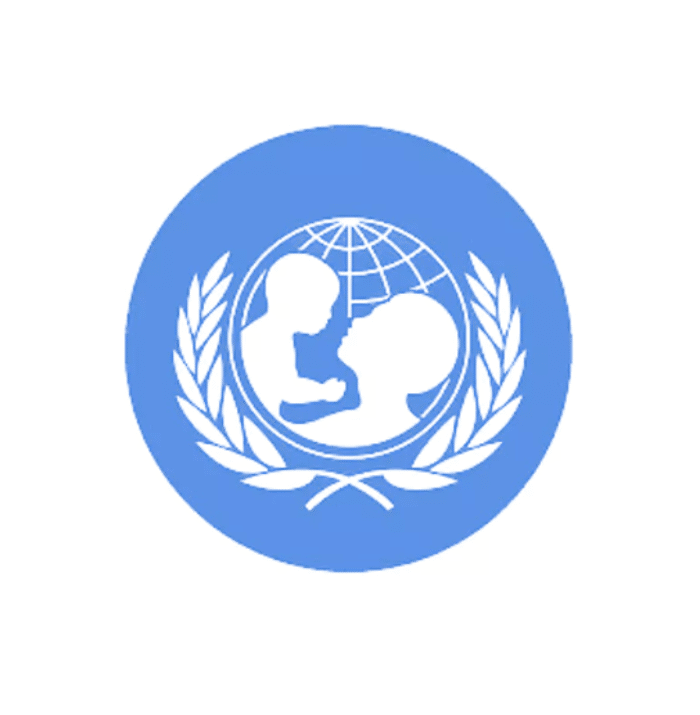Sextortion
Are you an adult who looks after or works with young people? Click here to get information that’s been created for you.
Sextortion in Scotland
Nudes, scuds, sexy selfies, d*ck pics - whatever you call it – you sent it to someone that you were talking to online and now they’re blackmailing you.
Maybe you didn’t even share a picture or video, but your images have been stolen, taken through hacking or have been faked using AI. They might not even have images but they’re trying to trick you into believing that they do.
The person is now demanding money, vouchers or trying to force you to do something you don’t want to do. This could be things like giving them access to your bank account, providing more sexual images or videos or even to meet up in person to force you to have sex.
If this has happened to you it’s not your fault.
This is a form of online blackmail called ‘sextortion’ and it’s illegal.
Who can it happen to?
Sextortion can happen to anyone no matter your age, gender or sexuality.
It affects people worldwide, including in Scotland.
Being a supportive friend makes it harder for criminals.
Talk to your mates and tell them that you’ll always be there for them. Nothing is too embarrassing – you accept them for them. This will help them to know that, if they’re victim of sextortion or any other crime, their friends won’t judge them, and that’ll make them feel more confident to speak up about it and get support. If we can reduce the shame around sextortion, then criminals will be less able to blackmail people.
Being digitally savvy
Review your privacy settings - if criminals can’t see who your friends and family are, they’re less likely to be able to make threats to share images or information. Learn more: Privacy Settings | Childnet
Don’t accept friend requests from people you don’t know. Be alert – they might say they’re a 15-year-old and seem to have a profile picture and content that makes you think that’s true – but they could be an adult criminal sitting overseas, ready to blackmail you.
Deepfake technology gives people the ability to change their face and voice on live video chat – so don’t think because it’s live it must be true. What is a deepfake? | Internet Matters
Even if someone appears to have mutual friends, if you don’t know them personally, then don’t accept them into your online world. Sometimes criminals will target a whole group of friends so that they will appear to have lots of mutual friends and that makes people trust them more.
Learn more about phishing scams Phishing and Scams | Childnet
Thinking of sending a nude or been sent one?
Learn more about all things Sexting and sending nudes | Childline
The blackmailer could be doing this as a full time job. They will probably be doing this to lots of people at the same time. They know exactly how to trick people into sending them pictures or feeling like they need to do what they demand.
Signs to spot:
- They’re moving too fast. They try to develop a relationship with you very quickly. They might be flirty, tell you they like you, or ask for a nude or sexy image or video. Some may even send a nude to you first to build your ‘trust’.
- They want to live video chat with you and encourage you to share parts of your body and do sexual acts. During this they might record or take screenshots.
- They pressure you to do things you’re not comfortable with. They might repeatedly ask you to do sexual things you don’t feel comfortable with.
- They might tell you they’ve hacked your account or that they have access to your contacts. Some blackmailers might tell you they’ve got nude/semi-nude images or videos from your device – that includes phone, tablet, cloud or other storage.
If anything happens online that makes you feel uncomfortable
Stop talking to that person – block them across all your social media platforms – get advice from a trusted adult.
Criminals make you feel like you need to act immediately, and that time is running out – that’s not true. Take time to breathe and get help.
Don’t panic. You’re not alone in this, there are people who can help you. Remember, you’re not to blame – the criminal is.
Do not pay or do what they’re demanding. Some victims who do, hear no more about it, others pay and are pressured for more money or to do more things. In some cases, even when money is paid the criminals share the videos or images anyway.
Do not talk any further to the criminals
Don’t try to reason with them or talk to them. Put your phone down and don’t read their messages trying to pressure you – it’ll only stress you out even more and there’s no point. Block them on all of your social media platforms and don’t read messages from or accept friend requests from strangers in the meantime – they might try to use a different profile to contact you.
Get support. It doesn’t matter the time of day, even if it’s the middle of the night, tell an adult you live with or contact Childline for confidential advice and support Get Support | Childline
You can also talk to a teacher at school or another adult that you trust.
We know that talking about it can feel like a huge step, but you wouldn’t be judged – it will be ok.
Account Settings
Lockdown your privacy settings across all your social media platforms – turn them to private so only the people you choose can see what you post.
Change the passwords to all of your accounts and emails.
Turn your location settings on Snapchat and all other platforms off so nobody can see where you are.
Go through your friends/followers – remove everyone that you don’t know face to face (where you live or through family connections) and trust.
Don’t delete any messages or your profile – read more about the next steps below.
It’s really important that, if you feel that you can, you take back control of what’s happened and do something about it. This will protect you from your images or video being shared. It might also stop others from going through something similar.
Evidence
Don’t delete anything from the phone or other device that you have used to have contact with the criminal and don’t delete your profile (just ensure you’ve fully locked down your privacy settings as outlined above)
If you feel safe to do so, screenshot the criminal’s profile information and any messages/images that they’ve shared – this will mean you have proof of the conversation even if the criminal deletes messages.
Report it.
You can do this by calling Police Scotland on 101 or report it to CEOP online.
Reporting this crime to the Police gives them the opportunity to investigate and report to the procurator fiscal. The criminal blackmailing you, may have also targeted other people and it allows Police to link the crimes together to build a strong case and try to prevent others from being harmed in the same way.
Reporting it to each of the social media platforms that you have had contact with the person on is important too.
Use the Report Remove Tool
If you’re under 18 you can use Report Remove | Childline to confidentially report sexual images and videos of yourself and get them removed from the internet. You can do this by filling out a simple form – you don’t need to talk to anyone and nobody will find out you used the service.
A trusted adult – someone who looks after you, another family member or someone like a teacher or youth worker.
Police – you can call them on 101 or, if it’s an emergency on 999
CEOP - if you think you’ve been a victim of sextortion or the way someone has been communicating with you online worries you, you can also report it to CEOP. One of their experienced and understanding Child Protection Advisors will be there to make sure you get the help that you or your friend needs. You can make a report online for yourself or do it for a friend. You can also ask a trusted adult to help you.
Childline is a free service there to help you with any situation you’re dealing with, no matter how big or small you think it is. You can call on 0800 1111 or chat 1-2-1 with a counsellor online by visiting their website childline.
Will I get into trouble?
No.
Whilst it’s illegal to send, share and receive nude images of someone under 18, if you’ve been tricked, threatened or pressured into doing it– like in a sextortion case – you will not face charges or blame.
This is not your fault.
You are a victim and Police Scotland will treat you that way.
More info: Sexting and sending nudes | Childline
Looking after your mental health
What’s happened to you is not nice. You might be really anxious about images being shared and feel upset that someone would do this to you.
You are a victim. The shame is on the criminal, not on you.
If you’re feeling low or struggling to cope with how you’re feeling, please talk to a trusted adult. Even if it’s in the middle of night – they’d rather you came to them than worry alone.
You can also contact the following charities:
A free, private and confidential service for anyone under 19 in the UK.
Available: 24 hours, 7 days a week
Phone: 0800 1111
Visit: http://www.childline.org.uk
HOPELINE247 is a 24-hour suicide prevention helpline provided by PAPYRUS Prevention of Young Suicide.
HOPELINE247 is staffed by trained suicide prevention advisers, who work with young people – and anybody concerned for a young person – to help keep them safe from suicide. HOPELINE247 is a free and confidential call, text, and email service, which is available 24 hours a day, every day of the year (weekends and bank holidays included).
Call: 0800 068 4141
Text: 88247
Email: pat@papyrus-uk.org

Victim of crime?
Because of our promise of anonymity, at Fearless we cannot take, respond to or pass on information from victims of the crime.
If you’re not the victim, you can use our anonymous service to tell us who is responsible for extorting, exploiting or blackmailing someone. The more detail you have on the person committing crime and what they do will better help any investigation.
To report being a victim of sextortion, or if you are concerned about someone – please contact Police Scotland on 101. In an emergency ALWAYS call 999.

UN Convention on the Rights of the Child (UNCRC)
As a young person (under 18) you have special rights, that are listed in a document called the UN Convention on The Rights of the Child, or UNCRC.
These rights aim to help you to grow up in a spirit of peace, dignity, tolerance, freedom and equality.
This campaign supports the following Rights of the Child:
Article 12 – Children have a right to be listened to.
Article 13 – Children and young people must be free to express their thoughts and opinions and to access all kinds of information, as long as it’s within the law.
Article 34 – Children must be protected from all forms of sexual abuse and exploitation.
Supported by The Scottish Government



